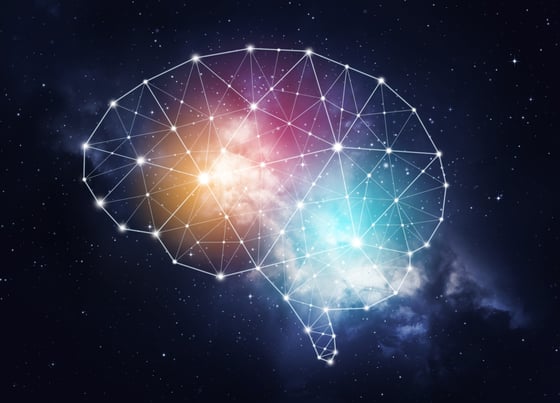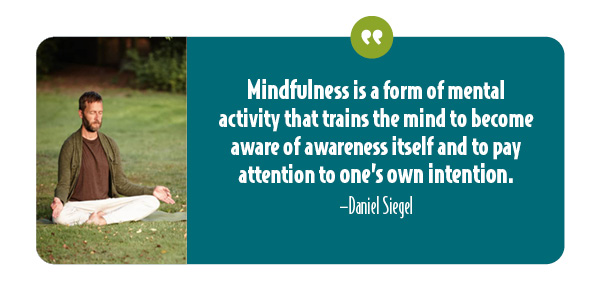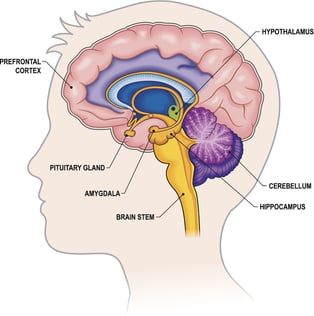We know that the brain plays a central and critical role in just about everything, from our thoughts to our emotions, to our behavior—for better or worse! Our brain is the engine. Research has also shown us that our brains have the incredible capacity to rewire themselves.
Sit quietly with that thought for a moment. The ability of the brain to rewire is revolutionary and life-changing. This knowledge puts us in the driver’s seat of our lives. And practicing mindfulness builds greater self-awareness and enhances our mental health.
Estimated reading time: 6 minutes

How Do We Rewire Our Brains?
To go about rewiring a better brain, we can look to the rapidly expanding field of neuroscience for guidance. You will not have to look far.
Mindfulness practices and meditation are gaining plenty of scientific support for having a wide range of benefits, such as emotional resilience. Study after study suggests that increasing mindfulness can “better” our brains. A regular mindfulness or meditation practice may indeed be a quick and effective way to help rewire our brains.
Whether you choose meditation or mindfulness, their practice enhances our ability to pay attention and be more present.
As Siddhi Yoga states:
"Meditation is about training the mind to achieve more awareness and perspective on life. It is the ability to be present in the here and now without dwelling in the past or living for the future."
And being present is key to rewiring our brains.
Let's not get ahead of ourselves though; let's define mindfulness.
What Is the Definition of Mindfulness?
Chances are you’ve probably heard about this thing called mindfulness. The term has become mainstream in both pop culture and rigorous scientific studies. In case you don’t have a clear sense of what mindfulness is exactly, a simple definition of mindfulness by Jon Kabat-Zinn, Ph.D. is nonjudgmental attention to the present moment. Try this mindfulness training for yourself.The process of building awareness means noticing body sensations, thoughts, emotions, and details of the environment that occur moment by moment.
The key is increasing awareness of your current experience without assigning positive or negative judgment. For example, as I write, I'm noticing the sound of the fan in the other room, my dog’s muffled snoring at my feet, and the keyboard clicking as I type. I am also noticing my mind wandering to thoughts of a project left undone, a phone call to return, and whether or not my husband will be able to pick up my dry cleaning today.
With mindfulness, instead of becoming frustrated or reactive to what is noticed (e.g., why can’t I focus my attention?), the goal is to just acknowledge what is happening.
Pretty simple, right?

So why is something seemingly so simple attracting so much attention?
It turns out people vary in their capacity to be mindful. Like all personality traits, individual differences in mindfulness appear to be attributable to
a combination of genetics, environmental influences, and interaction between the two.
Regardless of origin, neuroimaging shows that trait mindfulness is related to specific neurobiological structures and functioning. In other words, a mindful brain may look and work differently than a mindless brain.
But again, why do we care?
Why should you care?
Trait mindfulness is positively associated with a wide range of qualities of psychological well-being in different studies, such as Brown & Ryan, 2003.
Meditation can be conceptualized as a form of mental training; thus, mindfulness meditation is simply training your brain to be more mindful. With a regular mindfulness practice, you are retraining your brain.
What Does Mindful Mean Exactly?
If we return to our original definition of mindfulness, then mindfulness training entails intentionally paying attention to the present moment without judgment.
But before we go into the many different “hows” of practicing mindfulness and training your brain to be more mindful, let me (and the neuroscience) convince you that it’s worth your time.
I could delve into the rabbit hole of all the positive physical and mental health benefits associated with mindfulness meditation, but I think it is more useful to explore a core underlying mechanism through which mindfulness may be helping individuals achieve so many positive outcomes.

Mindfulness and Emotional Regulation
One critical component of healthy psychological functioning is an individual’s ability to effectively manage and respond to their emotional experience. Distress and impairment (eg., totally losing it and yelling at your spouse or child) arise when life’s stresses exceed our ability to adapt and effectively regulate our emotions. Underlying almost all psychological disorders are difficulties in emotional modulation.
To put this process simply: it is how we interpret
and process our experiences, manage our feelings associated with each experience, and take effective action to regain a sense of well-being.
Evidence is mounting for a strong relationship between one’s ability to be mindful and one’s capacity for emotional regulation. (And a daily practice in your home to increase your ability to be mindful is far cheaper than therapy, wouldn’t you agree!?)
Now let’s take a brief look at some of the neuroscience supporting the relationship between mindfulness and regulating emotions. (Promise!—it will be brief for those of you who don’t like science.)
 The amygdala (the almond-shaped set of neurons in your brain involved with emotions, especially fear) and the medial prefrontal cortex (mPFC) are two key regions that are involved in emotional regulation. At a basic level, they work together in a feedback loop in response to emotional stimuli.
The amygdala (the almond-shaped set of neurons in your brain involved with emotions, especially fear) and the medial prefrontal cortex (mPFC) are two key regions that are involved in emotional regulation. At a basic level, they work together in a feedback loop in response to emotional stimuli.
the amygdala becomes activated when it interprets a situation as emotionally salient. The mPFC then comes online (this is when we become consciously aware) and, when successful, down-regulates the amygdala so that the emotion doesn’t become too overwhelming. Problems in emotional regulation can occur when this negative feedback loop is not functioning properly, for example in PTSD.
A regular mindfulness practice builds a habit that can make dramatic changes in your brain as noted above.
How Can Mindfulness Help?
Studies show that mindfulness-based practices may work to increase the functional connectivity between the amygdala and mPFC. (Instead of fear and the amygdala hijacking your brain, the prefrontal cortex (the logical part of the brain) communicates and calms things down!
Increasing evidence indicates that the stronger the connectivity, the more efficient the emotional regulation.
Related reading: “Why Should You Care About Emotional Regulation?”
 Thus, this connectivity within the brain enables a person to increase their ability to calm down, regulate their responses to stressful situations, and have a more mindful awareness of their thoughts and mind chatter.
Thus, this connectivity within the brain enables a person to increase their ability to calm down, regulate their responses to stressful situations, and have a more mindful awareness of their thoughts and mind chatter.
With consistent practice, it’s possible for a person to increase their ability to shift intrusive, critical, and fearful thoughts to more logical conclusions and inspired actions. Being mindful allows us to observe our monkey mind instead of acting on the passing thoughts.
How to Practice Mindfulness
What is so exciting is that you can start strengthening your capacity for emotional regulation right in your own home!
The beauty of practicing mindfulness and meditation practices is that they can be self-directed and easily integrated into your everyday experience.
Here are some examples of how to shift stressful situations to mindfulness.
And if you’d like to try a mindfulness practice, try one or two of these simple mindfulness exercises. You can begin to renew your life and rewire your brain in healthier ways while handling stress more easily.
For more information on how to train your mind and rewire your brain, feel free to contact us at Heartmanity.








